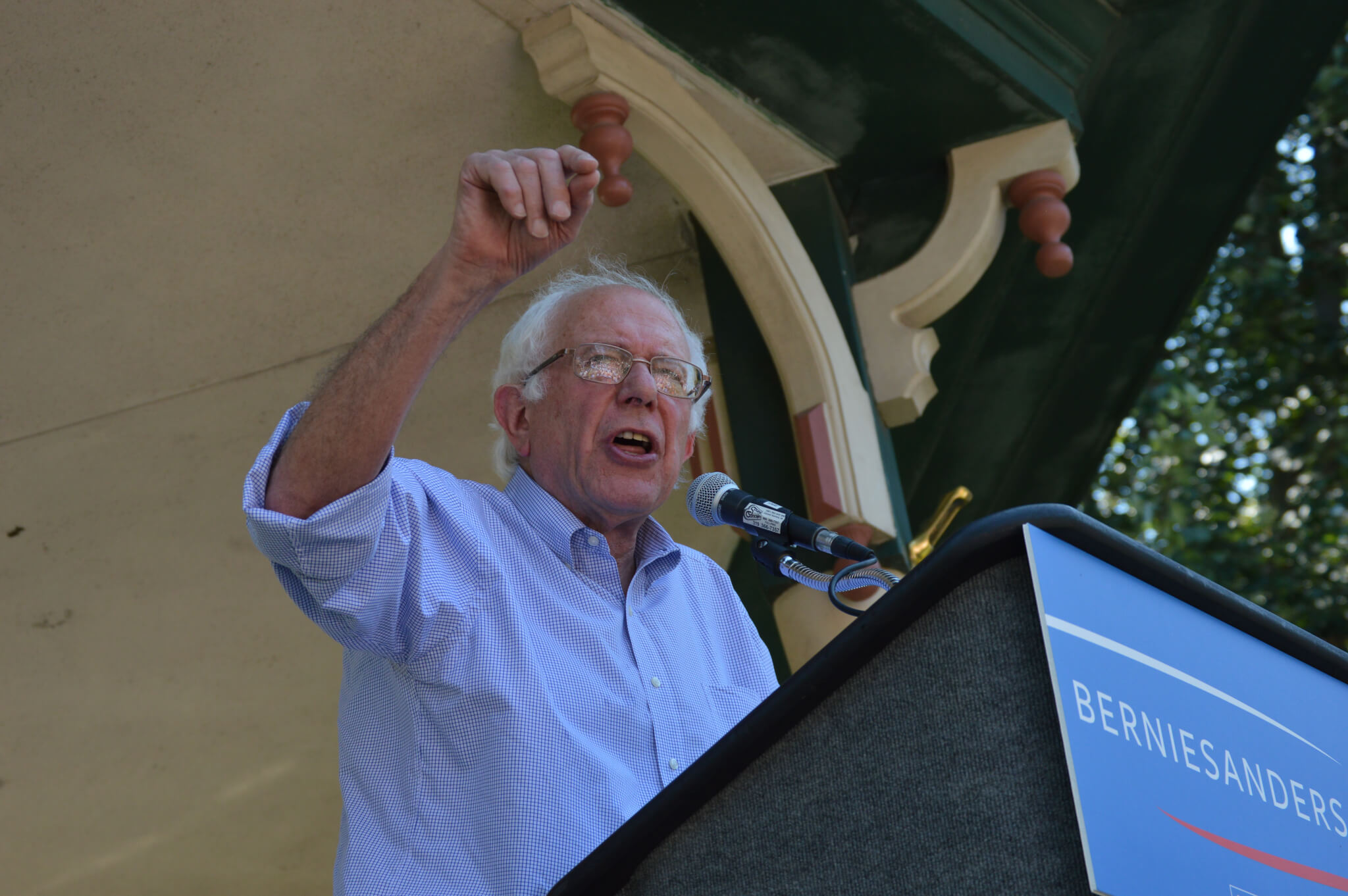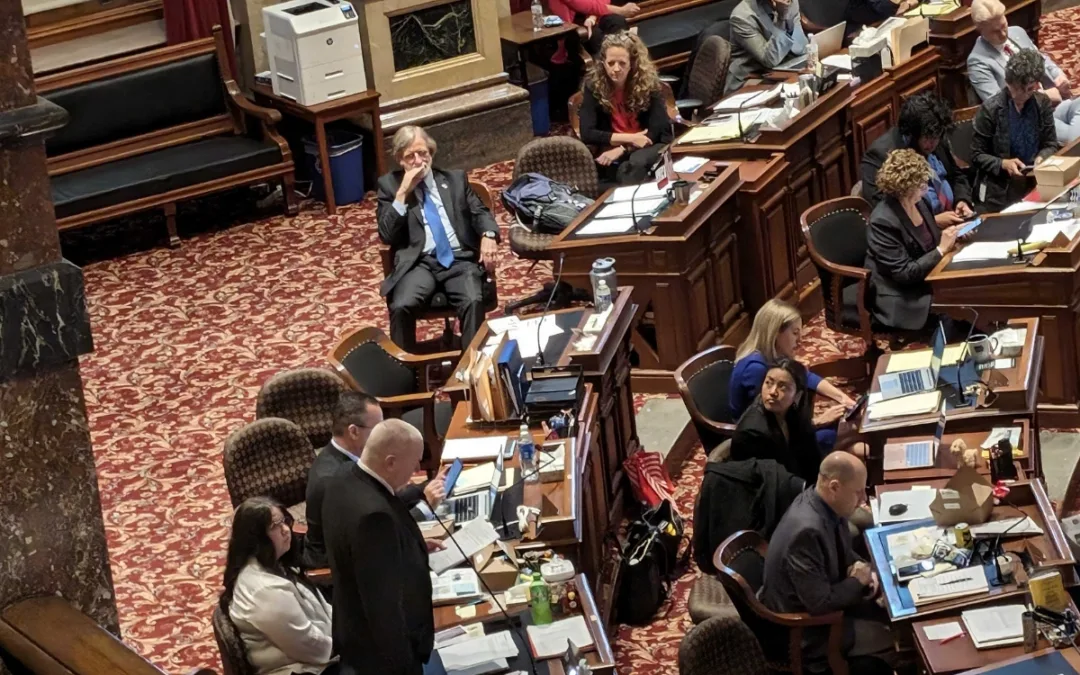
Senator Bernie Sanders has gained on, or maybe even caught, Hillary Clinton in Iowa as in the rest of the country. The Selzer poll showed Clinton with a seven point lead and most recently a Quinnipiac poll showed Sanders ahead by one in Iowa. In contrast, other late August Iowa polling shows Clinton with a 25+ point lead in Iowa. So, the picture is not entirely clear, but certainly it is reasonable to believe Sanders has dramatically improved his polling in Iowa.
Is Sanders running a good campaign in Iowa? At this point, I think the answer is no. Senator Sanders is not committing the time and resources into Iowa that he could, that Clinton is, and that others have done. I could also say that Sanders is failing to receive endorsements from Iowa Democrats on a pace one would expect from a contender, but let’s forget about endorsements. Let’s examine the situation without any consideration given to how many state legislators or party activists are supporting Clinton or Sanders.
Sanders is behind in putting organizers on the ground and letting them get to work. I use Democracy in Action’s statistics as a reference because Eric Appleman has been keeping tabs on these types of records for several caucus campaign cycles. The Sanders campaign now boasts of more than 50 people in Iowa. How many are on the ground organizing (field organizers and regional field directors)? (Note, you are getting my bias here in terms of valuing certain types of campaign staffers). It looks as though 16 Sanders staffers are Des Moines HQ types not organizing on a day-to-day basis. We can see 29 people working as organizers or regional field directors, though assuredly there are organizers not yet identified by Eric Appleman (likely not for long). Patrick Rynard estimates Sanders now has a field staff of 45 people. I think we can safely say Sanders has 30-45 organizers working in Iowa.
In contrast, we know of 47 Clinton field organizers and regional field directors. Troy Price tells me 30 have recently been hired, bringing the Clinton field staff at close to 80 organizers and regional directors. Does Clinton have a larger budget from which to build a field organization? Sure, but Sanders has demonstrated sufficient fundraising ability to be able to go toe-to-toe with Clinton in funding an Iowa field program. We also know Clinton had as many as 100 campaign “organizing fellows” – unpaid field staff – during the summer. The Clinton campaign also plans to bring on a second wave of organizing fellows this Fall. Leaving aside the Fair Labor Standards Act questions on this, it begs the question why doesn’t Sanders have something comparable? If Bernie Sanders is creating a political revolution why aren’t there 100 bodies willing to go work for him for lodging and gas money? The Iowa campaign that most closely resembles Gene McCarthy, Howard Dean or Barack Obama – in terms of attracting young people willing work for nothing and sleep on couches – is actually the Clinton campaign.
What about visiting Iowa and meeting likely caucus attendees? Is Sanders outworking Clinton? The answer is no. By my count, from January 1 to Labor Day Clinton has taken 9 trips to Iowa campaigning for 17 days here. Sanders had taken 8 trips to Iowa campaigning 20 days here. In comparison, from January 1 through Labor Day 2003, Howard Dean took 20 trips to Iowa spending 41 days campaigning here. You might well question whether Dean’s number was skewed by not being a sitting member of Congress. During the same time frame in 2003, the number of trips and days campaigning for members of Congress competing in the Iowa caucuses were: Gephardt 10 and 22; Edwards 13 and 25; Kerry 17 and 28; Kucinich 17 and 39. In other words, every candidate seriously competing in Iowa spent more time here in 2003 than either Sanders or Clinton. This is another area which seems like a lost opportunity for Bernie Sanders. If somebody else is the frontrunner, you usually have to outwork the frontrunner in order to beat them.
I acknowledge the next point may be purely anecdotal. I have been contacted by staff from each of the three campaigns. In the Mount Vernon/Lisbon area, where we live, I know of O’Malley, Sanders and Clinton supporters. I know Clinton has an active group of supporters doing volunteer work on her behalf. I am, though, not aware of local activists lifting a finger to help Bernie Sanders. I asked my Facebook friends what locals are helping out the Sanders campaign and I got crickets. These are two towns with a combined population of 7,000, a college campus, and where Obama won around 70% of the vote. There should be a group of Sanders supporters sufficiently active and vibrant that the former Democratic State Representative is aware of it, but there is not.
In 2004, the Dean campaign on which I worked was rightly criticized for running a national campaign and taking its eye off the ball in Iowa. Dean’s Sleepless Summer Tour drew huge crowds in major cities around the country as the campaign built up a huge list of small-dollar donors it could tap into again and again. It is great to have more donors but that time takes you away from early states. The idea “well nobody else could get that kind of crowd in _____” became the type of thing that allowed staffers to believe that we were working on something historic, simply bigger than what other candidates had. Caucus night was a real opportunity to sew up the nomination, but even if we did not actually win the caucuses sooner or later Governor Dean would win the nomination. I don’t need to finish that thought for you.
And Dean is probably not the right model for comparative purposes. In 2000, Gore led Bradley nationally but it was competitive. Bradley led Gore in New Hampshire right before the Iowa caucuses. Once Gore crushed Bradley in the Iowa caucuses, he got enough of a bump to move ahead in New Hampshire. After Gore pulled out a win in New Hampshire, the nomination was over. Of course, Bernie Sanders still has almost five months until the caucuses. He needs to spend more of his time and money in Iowa, otherwise he may discover how quickly and decisively both national and New Hampshire numbers can turn if you lose huge in the Iowa Caucuses.
by Nate Willems
Posted 9/12/15
Politics

AEAs cutting workers in wake of Republican legislation
Iowa legislators said a new bill cutting money for agencies that help students with disabilities wouldn't affect services. But area education...

He said what? 10 things to know about RFK Jr.
The Kennedy family has long been considered “Democratic royalty.” But Robert F. Kennedy, Jr.—son of Robert F. Kennedy, who was assassinated while...
Local News

No more Kum & Go? New owner Maverik of Utah retiring famous brand
Will Kum & Go have come and gone by next year? One new report claims that's the plan by the store's new owners. The Iowa-based convenience store...

Here’s a recap of the biggest headlines Iowa celebs made In 2023
For these famous Iowans, 2023 was a year of controversy, career highlights, and full-circle moments. Here’s how 2023 went for the following Iowans:...




